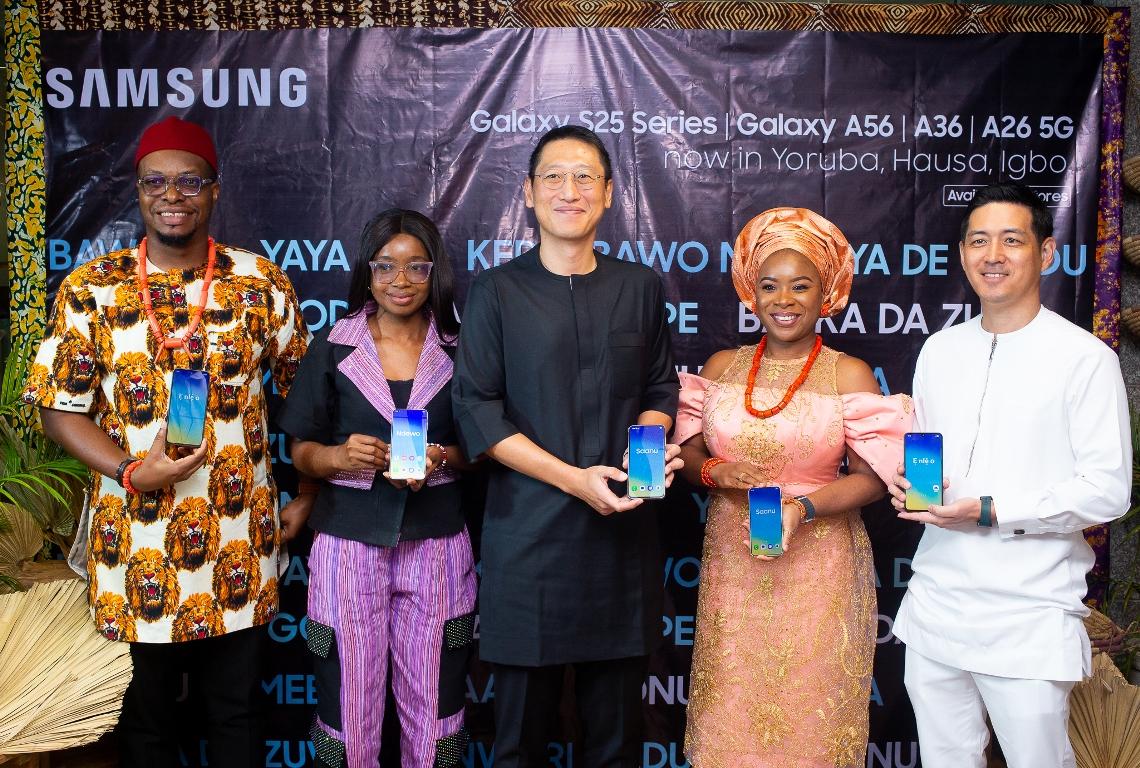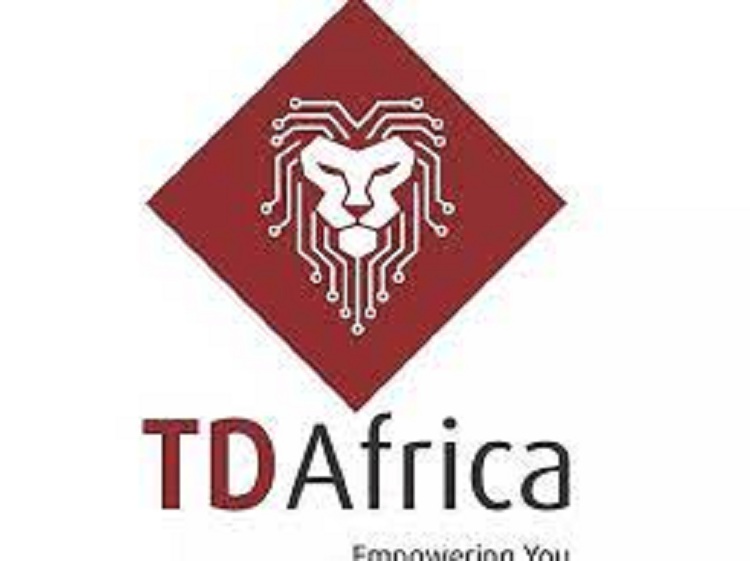Telecom
NCC Stops Unauthorised Transmission on 5.4GHz Frequency Band

Nigerian Communication Commission (NCC), said it curbed unauthorized transmission on the 5.4GHz Frequency Band.

The 5.4 GHz band is designated for unshared, coordinated and protected use of wireless access systems (WAS).
According to NCC, it visited the site of Trefoil Network Limited operation in Abuja over unauthorised transmission on the 5.4GHz frequency band.
The commission explained that after the company made a presentation in respect of its application for a regional Private Network Link (PNL) license which it intended to deploy using the unlicensed 5GHz band, it found out that Trefoil was transmitting on the licensed 5.4GHz band for its Internet service provision.
”A pre-enforcement notice was sent to Trefoil accordingly.
”In its response letter dated March 5th, 2019, it informed the Commission that it had vacated and desisted from the licensable portion of the band.”
The Enforcement Unit of the Commission also received a referral from Spectrum Administration Department regarding a complaint of frequency interference assigned to ipNX Nigeria Limited on the 5.4GHz band affecting its services in Abuja, Kano, Lagos Ibadan and Port Harcourt.
However, the commission issued pre-enforcement notices to the affected companies to vacate the frequency band on or before March 10, 2019.
”Following the notices, while some companies notified the Commission of their compliance, others failed to respond.
”Consequently, the Commission carried out an enforcement action against the illegal usage of 5.4GHz in Kano on March 12th, 2019 and in Lagos on March 26th, 2019 respectively to verify the claims by the companies/operators.
”The Companies visited in Kano were found to have vacated the 5.4GHz band that were causing interference.
”Enforcement was effected against three (3) companies found to be in violation in Lagos after the enforcement exercise undertaken for that purpose.
”Recovered items included 2 SDR Radio antennas and 2 Power over Ethernet (PoE) Power Packs in the operation and thereby enabled the successful shut down of the offending radios.”
Telecom
Samsung Introduces Local Nigerian Languages to Galaxy Devices, Celebrating Cultural Diversity

Samsung Electronics has taken a bold step in enhancing user experience and inclusivity by introducing Hausa, Igbo, and Yoruba as official language options on selected Samsung Galaxy devices.

L-R: Stephen Okwara, Head, Product Management, Mobile Experience, Samsung Electronics West Africa; Joy Tim-Ayoola, Group Head, Mobile Experience, Samsung Electronics West Africa; Tae Sun Lee, Samsung Electronics West Africa CEO; Oge Maduagwu, Head of Marketing Samsung Electronics West Africa, and Nathan Lee, Regional Business Lead, Mobile Experience, Samsung Electronics West Africa, at the launch of Nigeria local language integration on Galaxy S25, A56, A36, and A26 devices, on April 03, 2025.
The feature, which is now available on the Galaxy S25, A56, A36, and A26 devices, reaffirms Samsung’s commitment to delivering innovative technology that speaks the language of its users.
With this groundbreaking update, Samsung users across Nigeria can now navigate their smartphones in their preferred local language, making technology more accessible, while also upholding our cultural heritage.
A Celebration of Culture and Technology
To mark the launch, Samsung hosted a cultural-themed press briefing featuring traditional music, local cuisine, and a showcase of the new language feature. Employees and guests attended in traditional Yoruba, Igbo, and Hausa attires, celebrating Nigeria’s rich cultural diversity.
Samsung also announced plans to expand local language support to more devices in the near future, reinforcing its dedication to making technology more inclusive for African users.
Empowering Users Through Language
The integration of Hausa, Igbo and Yoruba on Samsung devices reflects the brand’s mission to bridge the digital gap and enhance user engagement. Speaking at the press conference, Oge Maduagwu, Head of Marketing, Samsung Electronics West Africa, said, “At Samsung, we understand that technology is most powerful when it is accessible to all.
“By incorporating our local Nigerian languages, we are making our devices more intuitive and relatable, ensuring that millions of Nigerians can interact with their smartphones in the language they love and understand best”.
Seamless Language Transition on Galaxy Devices
Stephen Okwara, Head of Product Management, Samsung Electronics West Africa added, “The new local language feature is designed to deliver a seamless user experience, allowing customers to easily switch between languages. Users can activate Hausa, Igbo, or Yoruba on the Galaxy S25, A26, A36, and A56 by navigating to: Settings > Language & Input > Select Language
“This update enhances smartphone usability, particularly for those who prefer their native language over English, ensuring greater digital inclusivity, enhancing digital literacy and encouraging more users to engage with technology in their native tongues” He concluded.
Availability
Customers can visit all Samsung Experience Stores or authorized retailers in Nigeria to learn more and experience the feature firsthand.
Telecom
Sophos Reveals Key Findings: 56% of Cyberattacks Exploit Valid Credentials

Sophos, a global leader of innovative security solutions for defeating cyberattacks, has released the 2025 Sophos Active Adversary Report, which details attacker behaviour and techniques from over 400 Managed Detection and Response (MDR) and Incident Response (IR) cases in 2024.

The report found that the primary way attackers gained initial access to networks (56% of all cases across MDR and IR) was by exploiting external remote services, which includes edge devices such as firewalls and VPNs, by leveraging valid accounts.
The combination of external remote services and valid accounts aligns with the top root causes of attacks. For the second year in row, compromised credentials were the number one root cause of attacks (41% of cases). This was followed by exploited vulnerabilities (21.79%) and brute force attacks (21.07%).
Understanding The Speed of Attacks
When analyzing MDR and IR investigations, the Sophos X-Ops team looked specifically at ransomware, data exfiltration, and data extortion cases to identify how fast attackers progressed through the stages of an attack within an organization. In those three types of cases, the median time between the start of an attack and exfiltration was only 72.98 hours (3.04 days). Furthermore, there was only a median of 2.7 hours from exfiltration to attack detection.
“Passive security is no longer enough. While prevention is essential, rapid response is critical. Organizations must actively monitor networks and act swiftly against observed telemetry. Coordinated attacks by motivated adversaries require a coordinated defense. For many organizations, that means combining business-specific knowledge with expert-led detection and response. Our report confirms that organizations with proactive monitoring detect attacks faster and experience better outcomes,” said John Shier, field CISO.
Other Key Findings from the 2025 Sophos Active Adversary Report:
· Attackers Can Take Control of a System in Just 11 Hours: The median time between attackers’ initial action and their first (often successful) attempt to breach Active Directory (AD) – arguably one of the most important assets in any Windows network – was just 11 hours. If successful, attackers can more easily take control of the organization.
· Top Ransomware Groups in Sophos Cases: Akira was the most frequently encountered ransomware group in 2024, followed by Fog and LockBit (despite a multi-government takedown of LockBit earlier in the year).
· Dwell Time is Down to Just 2 Days: Overall, dwell time – the time from the start of an attack to when it is detected – decreased from 4 days to just 2 in 2024, largely due to the addition of MDR cases to the dataset.
· Dwell Time in IR Cases: Dwell time remained stable at 4 days for ransomware attacks and 11.5 days for non-ransomware cases.
· Dwell Time in MDR Cases: In MDR investigations, dwell time was only 3 days for ransomware cases and just 1 day for non-ransomware cases, suggesting MDR teams are able to more quickly detect and respond to attacks.
Ransomware Groups Work Overnight: In 2024, 83% of ransomware binaries were dropped outside of the targets’ local business hours.
· Remote Desktop Protocol Continues to Dominate: RDP was involved in 84% of MDR/IR cases, making it the most frequently abused Microsoft tool.
To shore up their defenses, Sophos recommends that companies do the following:
· Close exposed RDP ports
· Use phishing-resistant multifactor authentication (MFA) wherever possible
· Patch vulnerable systems in a timely manner, with a particular focus on internet-facing devices and services
· Deploy EDR or MDR and ensure it is proactively monitored 24/7
· Establish a comprehensive incident response plan and test it regularly through simulations or tabletop exercises
Read the full It Takes Two: The 2025 Sophos Active Adversary Report on Sophos.com.
Telecom
TD Africa, EcoFlow Partner to Deliver Clean, Affordable Energy Solutions in Nigeria

In a bold step toward addressing Nigeria’s persistent energy challenges, TD Africa has partnered with EcoFlow, a global energy leader, to introduce an innovative range of portable, eco-friendly power solutions.

This collaboration delivers reliable, affordable, and sustainable electricity access for homes, businesses, and underserved communities across the country.
At the official launch event in Lagos, TD Africa’s Coordinating Managing Director, Mrs. Chioma Chimere, emphasized the transformative impact of the partnership. “We are redefining power access in Nigeria with cutting-edge, sustainable solutions designed for convenience and long-term impact.
“This initiative is more than just an addition to our portfolio; it’s about empowering individuals and businesses to embrace clean energy and reduce their carbon footprint,” she stated.
As the official distributor, TD Africa is making EcoFlow’s advanced portfolio of portable power stations and gas-powered generators readily available to Nigerian consumers.
This initiative aligns seamlessly with TD Africa’s broader mission to democratize access to technology and innovation across Africa.
EcoFlow Nigeria’s Business Development Manager, Isaiah Umoh, highlighted the importance of the launch, describing it as a significant milestone in ensuring energy independence for millions of Nigerians.
His words: “Our solutions are specifically designed with the Nigerian consumer in mind. This marks a pivotal moment in delivering stable power while supporting local sustainability goals.”
The unveiling event featured live demonstrations of the latest product, the EcoFlow RIVER 3 Max Plus, alongside other models such as the RIVER 2 Pro, DELTA 2, and DELTA 2 Max.
Attendees, including media representatives, energy experts, and lifestyle influencers, had the opportunity to engage firsthand with the ground-breaking technology.
This strategic partnership reinforces TD Africa’s role as a key player in making innovative, clean energy solutions more accessible throughout the continent. It also underscores both companies’ shared commitment to fostering sustainability and empowering communities through advanced energy technology.

 General News2 days ago
General News2 days agoAirbnb Community Fund Donates ₦13 Billion to Nonprofits Worldwide

 General News2 days ago
General News2 days agoNigerian Military Makes History with Africa’s First Attack Drones, Bombs

 News2 days ago
News2 days agoShell, Renaissance Face Legal Action over SPDC Licence Transfer

 Telecom2 days ago
Telecom2 days agoNigeria Heads Anglophone Data Protection Committee

 E-Business2 days ago
E-Business2 days agoKike, Nigerian Tech Firm Launches ‘Kike AI’ for Kitchen Innovation

 News2 days ago
News2 days agoWorld Bank Approves $1.08Bn Loan for Nigeria

 Telecom2 days ago
Telecom2 days agoHow MIP Is Making a Difference in The Media Landscape

 E-Financial2 days ago
E-Financial2 days agoSterling Bank Makes Online Transfer Charges Free of Charge



























